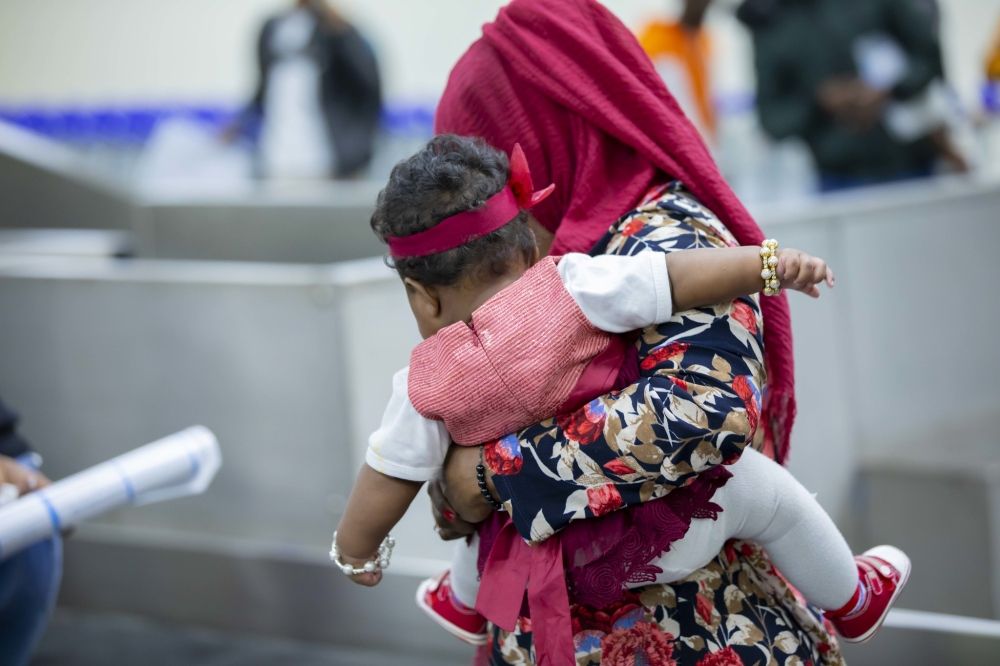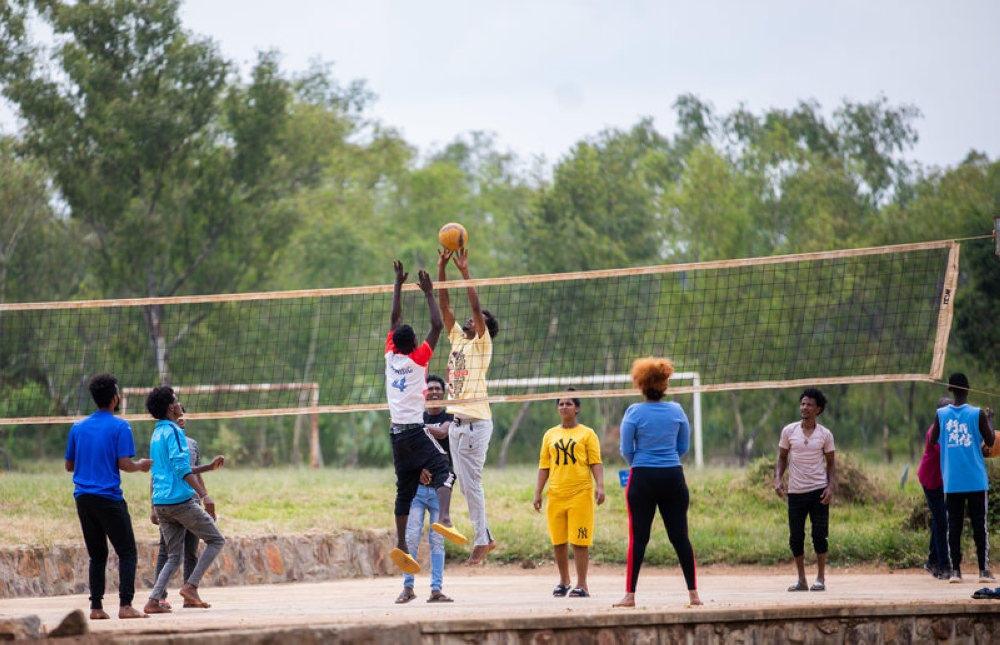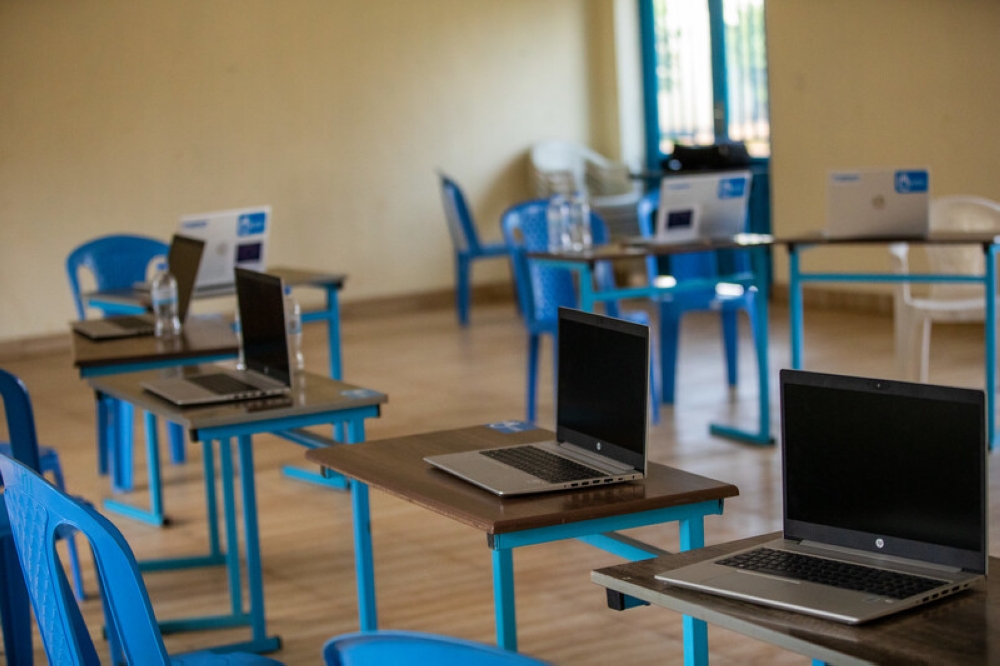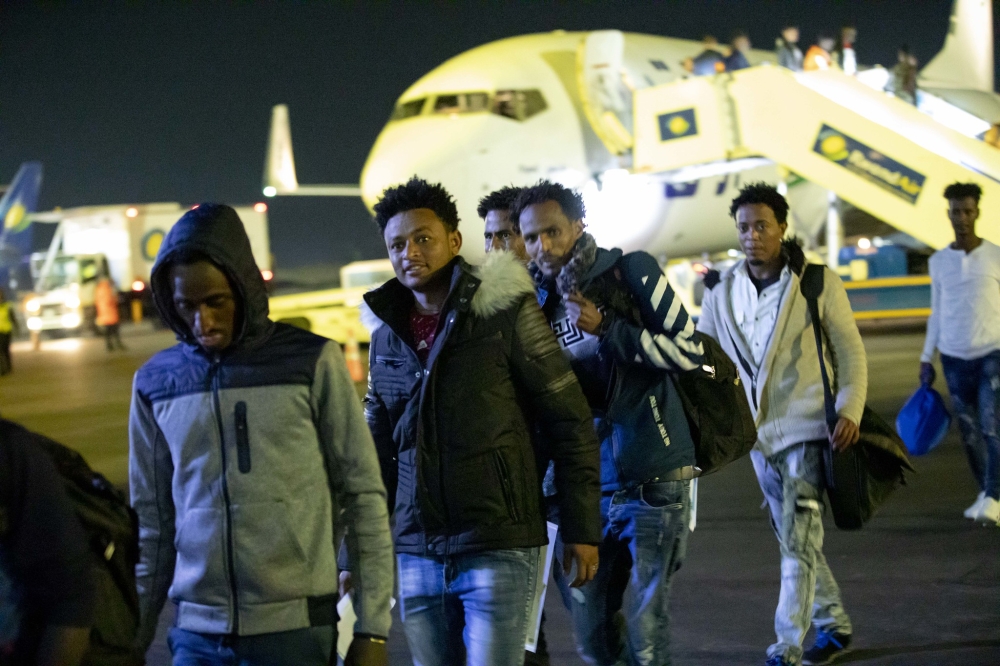The Rwandan government remains committed to hosting refugees despite recent criticism over an agreement with the UK, a government spokesperson said on Tuesday.
In an interview with British television Sky News, Yolande Makolo, a spokesperson for the Rwandan government said Rwanda which hosts more than 130,000 refugees, was “very much used to” offering good treatment to people seeking safety.
“We’re offering a home to people. We’re comfortable with that, and we would never have entered this partnership if we weren’t sure that we can successfully offer people a good place to live,” she said, adding “Rwanda is one of the safest countries in the world.”
“Rwanda has a long and proud history of providing refuge to those fleeing violence and persecution,” said . “We believe it is our moral duty to extend compassion to our fellow human beings in their time of need.”
Makolo was responding to growing criticism over a controversial deal between Rwanda and the United Kingdom, under which some asylum seekers arriving in Britain will be relocated to Rwanda for processing. The deal has faced backlash from human rights groups and religious leaders like the Archbishop of Canterbury.
However, Makolo defended Rwanda’s refugee policies. “Our resettlement program is completely voluntary and provides legal avenues for migrants. We treat all refugees fairly and with dignity,” she said.
Rwanda currently hosts around 130,000 refugees, primarily from neighboring countries like the Democratic Republic of Congo and Burundi. The small East African nation has been globally praised for its openness and integration of refugees.
Yet some critics argue too many refugees could strain Rwanda’s economy. But Makolo said Rwanda is working closely with the UN’s refugee agency to ensure refugee settlement is sustainable.
The five-year partnership signed in April 2022 seeks to transfer to Rwanda migrants arriving illegally in the UK through the British Channel.
The Supreme Court said the asylum seekers sent to Rwanda would risk being sent back to their countries of origin, which would be contrary to what is known as the principle of non-refoulement in the 1951 Refugee Convention.
“We are signatories to the Refugee Convention. We do not send anyone back or deport people back to dangerous situations they have fled or situations of persecution. We’ve never done that and we don’t intend to,” Makolo said.
“We want to be a country that works for Rwandans, that works for Africans, that’s welcoming. We want to continue to do this. We are doing the best that we can with the resources that we have”
Following the Supreme Court ruling, the two governments announced they were working on a new treaty that would confirm Rwanda is indeed safe for asylum seekers.
The UK Prime Minister Rishi Sunak said the Rwanda policy was “an essential part” of his plan to stop illegal migration.
“The partnership that we’re working on with the UK will ensure that [the asylum seekers] get opportunities, that they receive the safety that they need and they get training in language skills. They will be able to go to school and they will live amongst us in Rwanda,” Makolo said.
She said they would not be sent to their countries of origin if they did not choose to.
“If they do want to go back home, we will not be deporting anyone or sending people back to dangerous situations, but they will have a choice to go back home if they want to. We’re not setting up any kind of prisons here,” she said.
Makolo reiterated that they “will benefit from the same opportunities that Rwandans have” and that over the five-year period the two governments will be working to ensure that the asylum seekers are fully integrated in the society.
“What we’re trying to do is raise the level of services that we deliver to Rwandans, raise the quality of education, maximise job opportunities and [the asylum seekers] will have a legal path to residence and citizenship, and have opportunities to live a decent life here like every other Rwandan.”
Since 2017, through an emergency transit mechanism supported by the United Nations refugee agency (UNHCR), Rwanda has received nearly 2,000 asylum seekers evacuated from Libyan detention centres.
Close to 1,300 of the asylum seekers mostly from the Horn of Africa have since been resettled in third countries.
Makolo said the partnership with the UK is an improvement on the emergency transit mechanism with the UNHCR.
Correcting North-South imbalance
Makolo said the UK-Rwanda partnership was a “well-thought” programme that seeks to address the global migration crisis “in a way that corrects the imbalance in opportunities between the Global South and the North.”
“We don’t want to lose people on these desperate journeys across the Sahara and the Mediterranean Sea. We’re losing brain power in Africa,” she said.
“We want young Africans to remain here and to build the continent. We want to build these opportunities here… Rwanda wants to be a place of opportunity on the continent of opportunities. This is the first step in that. What we’re working on with the UK is not just a migration partnership; it’s a migration and economic development partnership.”
partnership.”


















